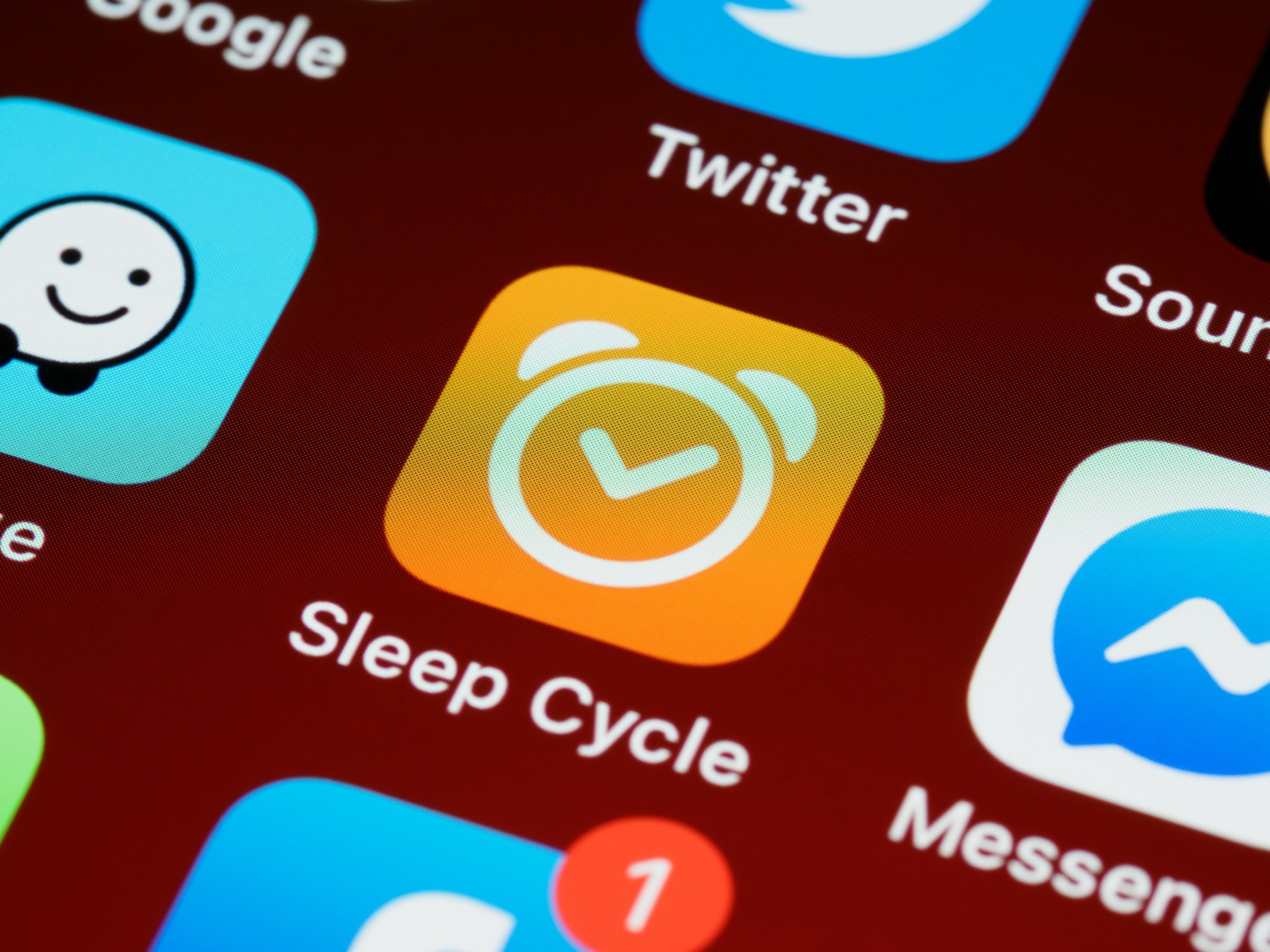Do Sleep Trackers Really Work?

It seems that everyone that you see is wearing a tracking device on their wrist. Those who don’t have them on their wrists have them on their phones. They certainly are the latest, must-have fashion accessory, but what is their purpose? Do they really work?
What is a sleep tracker? Sleep trackers are pieces of technology that track your sleep length, quality, and habits. There are several different types of sleep trackers available to consumers. They include:
- Sleep trackers that you can wear: People wear these devices on their arms like a watch or on their fingers at bedtime. They keep track of how much you move and your heart rate. Some are also used to track exercise, breathing, steps, and even the number of calories you burn.
- Bed sensors are trackers that attach to your bed and monitor your movement. These sensore sensors usually go underneath your mattress or sheets. Some of them can also measure the humidity and temperature of your room. There are now smart mattresses that can do all these things; it’s built into the mattress.
- Bedside trackers are sensors that sit on your nightstand or beside your bed and monitor your sleep from there. They measure your movement and breathing. These devices usually monitor room conditions as well as your movement.
Once the trackers collect the data, they send it to an app where you can look at the information. These apps keep track of the data over time. You can then compare your sleep from multiple nights, even months, and use this information to make lifestyle changes accordingly.
Because sleep trackers are a relatively new technology, only a few completed clinical studies studied their effectiveness and accuracy.
What Data Do Sleep Trackers Track?
” God has made sleep to be a sponge by which to rub out fatigue. A man’s roots are planted in the night as in a soil.” – Henry Ward Beecher
Sleep trackers monitor several different areas that are critical for good sleep hygiene. So what is sleep hygiene, you may ask? A simple way to think of sleep hygiene is the daily habits you establish that either help or hurt your sleep cycle. The most common data that sleep trackers collect are:
- How long you sleep: Sleep trackers measure body movement. Tracking your body movement throughout the night, the tracker can tell when you fall asleep and wake up.
- How well you sleep: If you move around a lot while you are asleep or wake up off and on during the night, your sleep tracker will know you are not sleeping well. However, if you sleep quietly through the night, the tracker will know that you had good quality sleep.
- Your sleep cycles: Some trackers claim that they can track your nonREM and REM sleep cycles. They then time your alarm to go off when you are in your lightest sleep cycle, making it easier for you to awaken in the morning.
- Your lifestyle choices: Choices that you make throughout your day have a significant impact on your sleep. Your tracker will track things like exercise, watching television, the time you go to bed, the time you wake up, and caffeine consumption to help determine if the things you are doing are helping or hurting your sleep.
- Your sleeping environment: Where you sleep can be a determining factor in how you sleep. Studies have proven that people sleep better in cool and dark rooms. Sleep trackers can measure things like room temperature, humidity, and light levels.
Do They Work
“As with any technology, I believe sleep trackers will continue to improve their accuracy. I foresee them being even more useful tools in the treatment of sleep disorders in the future.” Dr. Tomkinson
There is limited research available on trackers’ efficiency and accuracy, and the research is somewhat contradictory. Therefore, to understand how well trackers work, we must know how they work.
The secret to sleep trackers is they don’t actually measure your sleep; they measure your movement. More accurately, they measure your lack of movement at night and use that data to estimate how much you sleep.
The way that trackers measure your movement in one of two ways. The first is an accelerometer. According to the Oxford dictionary, an accelerometer is “an instrument for measuring acceleration, typically that of an automobile, ship, aircraft, or spacecraft, or that involved in the vibration of a machine, building, or other structure.”
The second way trackers measure your movement is through a gyroscope. The Oxford dictionary defines a gyroscope as “a device consisting of a wheel or disk mounted so that it can spin rapidly about an axis which is itself free to alter in direction. The orientation of the axis is not affected by tilting of the mounting, so gyroscopes can be used to provide stability or maintain a reference direction in navigation systems, automatic pilots, and stabilizers.”
Sleep trackers have proven surprisingly effective for determining how long you sleep. According to studies, wearable sleep trackers are around 70% accurate regarding how long you sleep and how often you wake. However, they are not effective at determining your sleep cycles and how long you are in nonREM and REM sleep. The only way to truly measure these things is by getting a sleep study done by your doctor. A sleep study monitors your brain waves while you sleep. This is the only way to track your stages of sleep scientifically.
“Nothing replaces the in-depth knowledge provided by a sleep study.” Dr. Tomkinson
Sleep trackers have proven to be relatively ineffective at tracking the sleep of people diagnosed with insomnia. Though this may sound counterintuitive, people with insomnia tend to lay very still when trying to fall asleep. The sleep tracker counts this as time slept when in fact, they we’re awake. Another group that sleep trackers underserve is those who move a lot in their sleep. The sleep tracker cannot differentiate between movement while asleep and movement when awake. Sleep trackers that were able to monitor heart rate did seem to work better for these groups. Though, they were still not as accurate as for those without these sleep issues.
However, they are helpful by collecting data on lifestyle choices and sleep hygiene. This information, when entered accurately, is excellent for helping people track their sleep habits over time and figure out what is helping their sleep and what is hindering it.
Do Sleep Monitors Raise Sleep Anxiety
One trend concerning doctors is the rise in sleep anxiety they see in some people who wear sleep trackers. This is a relatively new phenomenon as the technology is still so new. However, doctors are noticing a rise in anxiety in some patients when they track their sleep.
” And if tonight my soul may find her peace in sleep, and sink in good oblivion, and in the morning wake like a new-opened flower then I have been dipped again in God, and new-created.” – AD.H. Lawrence
A recent study gave a group of volunteers sleep trackers. Then the researchers manipulated their sleep scores. When participants saw that they had a “poor” or “bad” sleep score from the night before, they immediately reported an adverse change in their mood. They reported having a hard time concentrating and increased exhaustion throughout the day. Conversely, when they saw they had a “good” sleep score the night before, their mood improved, they reported increased wakefulness and productivity throughout the day. It is essential to point out that the researchers manufactured these scores and did not represent their actual amounts of sleep. Researchers saw this uptick in anxiety when volunteers had, in actuality, had a good night’s sleep but saw the manipulated “bad” sleep numbers. The opposite was also true; volunteers who had a “poor” night’s sleep but were told they had a good night’s sleep experienced an uptick in mood, productivity, and wakefulness.
Researcher’s concluded that the perceived effect from the sleep tracker was more significant than the effect of their actual sleep. Patients must remember that trackers are a tool for tracking information, but they should not add to your anxiety about sleep. If you are experiencing more sleep anxiety because of the sleep tracker, it would be better for your rest and mental health to take off the tracker altogether.
How Doctors Can Use Sleep Tracker Data
“As long as my patients understand their uses and their limitations, I encourage my patients to use sleep trackers.” Dr. Tomkinson
Sleep trackers have given doctors a new tool for treating their patients’ sleep problems. Though sleep trackers cannot replace a sleep study for a scientific look at your brain’s sleep patterns, they can be a valuable tool in tracking sleep hygiene habits and how long you sleep.
Doctors can now look at the data that has been collected and stored by your sleep tracker and use that information to determine if more testing is needed. They can also suggest sleep hygiene habits that you can change or add to improve your sleep. So these trackers do give doctors a unique new tool in the treatment of sleep disturbances.
Conclusion
“Sleep trackers are a great tool to make patients more aware of their sleep hygiene habits.” Dr. Tomkinson
Sleep trackers are still a new technology that is improving every year. They should be used as a tool to help track sleep duration and habits. However, they should not be used to track your sleep cycles or quality because they cannot measure your brain waves, which is the only way to do those things. However, they provide us an excellent way to keep track of our habits and improve our sleep hygiene.
The information in this article is not meant for diagnostic purposes, and we are not doctors. Please consult your doctor before making any decisions concerning your healthcare.
Resources
Do Sleep Trackers Really Work? Johns Hopkins Medicine. (n.d.). https://www.hopkinsmedicine.org/health/wellness-and-prevention/do-sleep-trackers-really-work.
Joy, K. (2019, March 15). Do Sleep Trackers Work? Pros and Cons to Know. Do Sleep Trackers Work? What you can do to improve your sleep. https://healthblog.uofmhealth.org/wellness-prevention/do-sleep-trackers-work-pros-and-cons-to-know.
Matthew Reid Post Doctoral Researcher. (2021, March 26). Are sleep trackers accurate? Here’s what researchers currently know. The Conversation. https://theconversation.com/are-sleep-trackers-accurate-heres-what-researchers-currently-know-152500.
Mayo Foundation for Medical Education and Research. (2020, March 28). Sleep-tracking devices: Dos and don’ts. Mayo Clinic. https://www.mayoclinic.org/healthy-lifestyle/adult-health/in-depth/sleep-tracking-devices-dos-donts/art-20481371.

